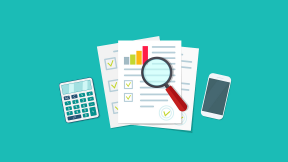Understanding an 810 credit score

Quick insights
- Depending on the scoring model used, an 810 credit score is considered “excellent” or “exceptional.”
- To get an 810 credit score, you need to stay disciplined and consistent with healthy financial habits, such as making your payments on time.
- An 810 credit score may give you some financial opportunities that lower credit scores could not.
You‘ve recently checked your credit score and you see it’s 810—this can be great news! But why? What does this score mean and how can it benefit you? Below we describe what an 810 credit score means in more detail.
Is 810 a good credit score?
An 810 is a high credit score. Depending on the scoring model used, an 810 credit score may be considered excellent or exceptional. Let’s break down the categories of both VantageScore® and FICO® score below. As of January 2025, VantageScore ranges are:
- Excellent: 781 to 850
- Good: 661 to 780
- Fair: 601 to 660
- Poor: 500 to 600
- Very Poor: 300 to 499
As of January 2025, FICO score ranges are:
- Exceptional: 800+
- Very Good: 740 to 799
- Good: 670 to 739
- Fair: 580 to 669
- Poor: 579 and below
An 810 credit score is a high credit score and can come with credit benefits, such as more favorable terms on loans and credit cards and lower interest rates. Let’s review these in more detail.
Benefits of an 810 credit score
The opportunities of having an 810 credit score include, but are not limited to:
- Positive impact on annual percentage rates (APRs). A higher credit score can improve your chances of landing lower APRs on credit cards, loans and more. With a lower APR, you could potentially save on interest costs over time.
- Favorable conditions. You will likely have more favorable terms and conditions (such as higher credit limits) that come with your loans, cards and other financial agreements.
- Potential access to more premium credit cards. Cards that come with special rewards and perks may require higher credit scores.
- Higher chances of approvals for rental applications. Landlords sometimes look at your credit score as part of a rental application, so a higher credit score like 810 could help improve your chances of solidifying a home.
Strategies to maintain or improve an 810 credit score
An 810 credit score isn’t easy to achieve, so it can be helpful to maintain it once you do. Here are some ways to help you maintain, or potentially improve, your 810 credit score:
- Regularly monitor your credit score. Monitoring your score helps you stay aware of factors impacting it and make adjustments as needed along the way. One way you can do this is by enrolling in Chase Credit Journey®, a free online tool anyone can use. With Credit Journey®, you can view your score for free as much as you want without impacting it.
- Review your credit report. Your credit report can be a helpful tool for identifying areas of improvement or spotting inaccuracies that you can dispute with the credit bureaus. Disputing inaccuracies that are negatively impacting your score and having them removed from your credit report could potentially help raise your score.
- Lower your credit utilization ratio. This ratio is the amount of credit you use compared to your total available credit. For example, if you use $4,000 of your total $10,000 limit, your ratio would be 40%. Lowering this ratio to about 30% or less can positively impact your score.
- Request a credit increase. If you are already in good standing with your lender, you may want to consider requesting a credit limit increase if you pay your balances on time. Doing so may help lower your credit utilization ratio and result in improving your credit score.
In conclusion
An 810 credit score is a positive indication that you are on solid footing with your credit. It can help you gain access to financial opportunities you might not otherwise have with a lower credit score, such as saving more on interest costs. As you continue on your path, remember to check in on your financial habits along the way so that you can maintain or even improve your score.



